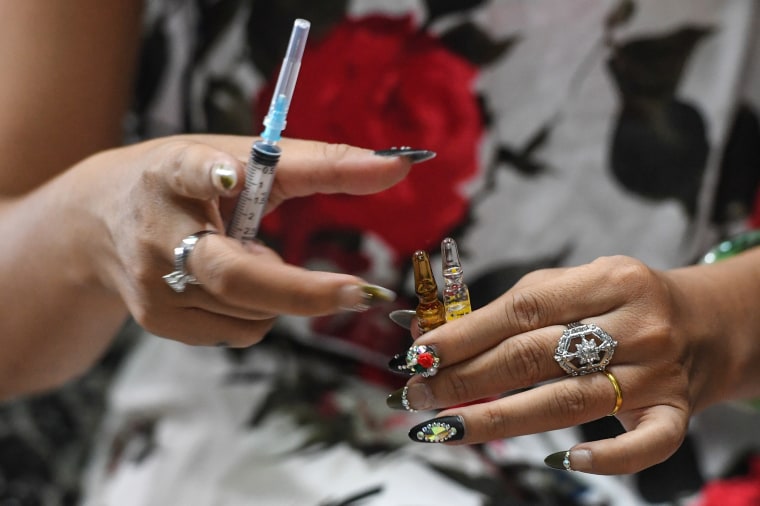Transgender women on hormone therapy may be at a higher risk for cardiovascular problems, such as stroke, blood clots and heart attack, researchers reported Monday.
The study was done by reviewing eight years of medical records of nearly 5,000 transgender patients in the Kaiser Health system, and looked at patients over the age of 18 who took hormones for gender transition. Over 97,000 cisgender patients — people whose sex assigned at birth matches their gender identity — with similar age and health characteristics were studied for comparison.
“My concern is that doctors who are inclined to deny hormone therapy will use this study as a reason to do so.”
“This is the largest study of the health of transgender individuals on hormone therapy ever done,” Dr. Darios Getahun, an author of the study and research scientist at Kaiser Permanente, told NBC News. “Doctors and patients need to be aware of the possibility for increased health risks for transgender women.”
The study found that transgender women, who are assigned the male sex at birth, were twice as likely as cisgender men or women to have the blood clot condition venous thromboembolism. Transgender women on hormone therapy were also found to be 80 to 90 percent more likely to have stroke or a heart attack than cisgender women.
Transgender men on hormone therapy, however, were not found to have a higher risk.
The review of the records has limitations and isn’t enough to establish a direct cause and effect, Getahun cautioned. He noted that the study, published in the Annals of Internal Medicine, only had access to the patients’ records at Kaiser, so any outside medications couldn’t be accounted for. In addition, the dosage and type of hormones administered were unknown.
A traditional study to determine direct cause and effect usually involves one group receiving a placebo, while the other group takes the real medicine. But giving a patient in transition fake hormones without his or her knowledge or consent is ethically prohibitive.
“For now, this study is the best measure we have of the risk, and it’s much better than what we’ve had before,” Getahun said.
In the past, studies measuring cardiovascular effects of estrogen therapy have been done on menopausal women and applied to transgender women. But the study of transgender women found significant differences, particularly for long-term use. Menopausal studies cited by the Kaiser researchers showed risks of cardiovascular illness declining over long-term use, but the Kaiser study found that risk increased for transgender women over time.
Still, Dr. Joshua Safer, another author of the study and executive director of the Transgender Medicine Center at Mount Sinai Hospital in New York, said that while the cardiovascular risk is higher for transgender women, it’s not that high. There were 148 cardiovascular events recorded out of the 2,842 transgender women in the eight-year period.
“The confirmation of this risk is good to have so patients can be warned and precautions can be taken,” he said in an interview. “But I think most transgender women would conclude the risk is not high enough to forgo hormone therapy.”
Dr. Richard Greene, an associate professor of medicine and director of health disparities education at the New York University School of Medicine, is a primary care doctor who treats many transgender patients. He said that transgender people are often denied hormone therapy, and that a person’s gender identity is often not factored into medical studies.
“This is a great study and I’m not surprised by its conclusions,” he told NBC News. “But my concern is that doctors who are inclined to deny hormone therapy will use this study as a reason to do so.”
He stressed that hormone therapy is lifesaving for many transgender people, who often struggle with depression or even contemplate suicide if denied it.
“The risks here are not different from many other medications and therapies that are used,” he said. “There need to be more studies focused on trans-identified people so we can learn risks specific to them and provide better care.”


